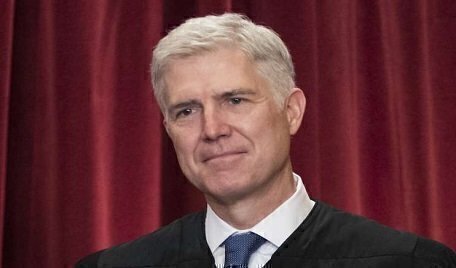Associate Justice Neil Gorsuch said nothing during Monday’s Supreme Court arguments in a potential landmark case that could greatly affect public-worker unions. But the Court’s newest Justice is widely expected to have a big impact on the Court’s decision.
 The nine Justices heard about one hour of arguments in Janus v. AFSCME, a case that could greatly affect the financial health and political impact of public-sector unions.
The nine Justices heard about one hour of arguments in Janus v. AFSCME, a case that could greatly affect the financial health and political impact of public-sector unions.
Related Podcast: Mandatory Union Fees And The First Amendment
In March 2016, an evenly divided Court couldn’t decide a similar case, Friedrichs v. California Teachers Association, after Justice Antonin Scalia’s death; many court watchers had expected a ruling against the unions if Scalia had been present.
The Janus case deals with a similar issue. The Illinois Public Labor Relations Act requires all employees working at a public agency or public organization to pay a fee for unions to negotiate contracts, even if some employees don’t belong to unions. Some of that money also goes to support political causes that benefit unions.
The petitioners in the Janus case believe such fee arrangements are unconstitutional under the First Amendment. Such a ruling would overturn a decision from the 1977 Burger Court, Abood v. Detroit Board of Education, which rejected a constitutional challenge to agency fees.
According to reports from the courtroom, the conservative Justices who spoke, including Justice Anthony Kennedy, seemed sympathetic to the petitioners, while the liberal Justices sided with the unions. Two Justices – Gorsuch and Clarence Thomas – asked no questions.
With any case that would overturn a decades-long precedent at the Court, it can be difficult to determine the Court’s final decisions based on questions presented at arguments. However, some of the questions appeared to be quite telling.
In one exchange noted by reporters at the Court, Justice Kennedy directly confronted the issue of forced union dues as compelled political speech.
“Does this case affect the political influence of unions?” Justice Kennedy asked David Frederick, the attorney for AFSCME. After Frederick replied, “Yes,” Kennedy commented: “Isn’t that the end of this case?”
Justice Sonia Sotomayor said she thought the scope of a decision against AFSCME would have a dire impact. "You're basically arguing, do away with unions," Sotomayor told the attorney for Mark Janus, the government worker who brought the lawsuit.
Given that the Court split 4-4 on the prior Friedrichs case, there is a widespread assumption that the Court’s frequently conservative and liberal judges were split. The one-page per curium order in the Friedrichs case didn’t list how the Justices voted in private.
Unions had also lobbied heavily against Gorsuch’s confirmation by the Senate last year.
Scott Bomboy is the editor in chief of the National Constitution Center.







